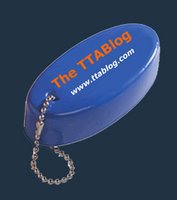Precedential No. 8: TTAB Strikes "Trademark Bullying" Affirmative Defense in DOOR DABZ Opposition
Trademark bullies breathed a sigh of relief when, in this opposition to registration of the mark shown below for delivery of medical cannabis via car service, the Board rejected Applicant Greenerside's affirmative defense of unclean hands. Opposer DoorDash alleged likelihood of confusion with eight registered DOORDASH marks for various goods and services, including food delivery. Greenerside asserted that DoorDash has misused its trademarks in a "longstanding and habitual practice of trademark bullying" by opposing a "significant number of applications" on "dubious, weak or exaggerated" grounds. The Board granted DoorDash's motion to strike that defense. DoorDash, Inc. v. Greenerside Holdings, LLC, Opposition No. 91285160 (May 23, 2024) [precedential].
FRCP 12(f)(2), in pertinent part, allows the Board to strike from a pleadings "any insufficient or impermissible defense." The Board pointed out that "[a]n unclean hands defense must be supported by specific allegations of misconduct by a plaintiff that, if proved, would prevent the plaintiff from prevailing on its claim." Of course, the misconduct must be related to plaintiff's claim.
The Trademark Act does not refer to “trademark bullying” explicitly or even implicitly. Rather, it provides for a trademark owner to protect its mark from confusing uses that may infringe upon an owner’s rights through court litigation, and for parties who believe they would be damaged by the registration of a mark on the Principal Register to oppose or petition to cancel such registration before the Board.
Courts have awarded sanctions in trademark cases as a result of "over-aggressive trademark enforcement" accompanied by no reasonable basis for recovery. Greenerside argued essentially that DoorDash's Section 2(d) claims "overreach" and therefore constituted unclean hands.
The Board has previously considered assertions of "unclean hands" based on "overzealous enforcement" but found that this defense "does not apply to a registrant "seek[ing] to protect its rights in its registered marks, and preclud[ing] the registration of what it believes to be a confusingly similar mark."
Here, the Board found that DoorDash is "merely exercising its right to protect its marks." The Board observed:
A defense, as with any pleading, must contain sufficient factual matter to give rise to a particular defense. *** There must be more than threadbare recitals supported by conclusory statements. *** Applicant’s mere characterization of Opposer’s prior opposition activity as "bullying," or assertion of "dubious, weak or exaggerated" claims, does not constitute a sufficient allegation of facts to support an unclean hands defense.
And so, the Board granted the motion to strike and, "as the allegations do not support the pleaded affirmative defense," denied Greenerside the opportunity to re-plead.
Read comments and post your comment here.
TTABlogger comment: The reason for denying Greenerside the right to re-plead seems strange to me. I can see the Board saying that Greenerside tried twice and that's enough. But saying that its allegations fell short seems like a reason to consider the possibility of re-pleading.
Text Copyright John L. Welch 2024.































